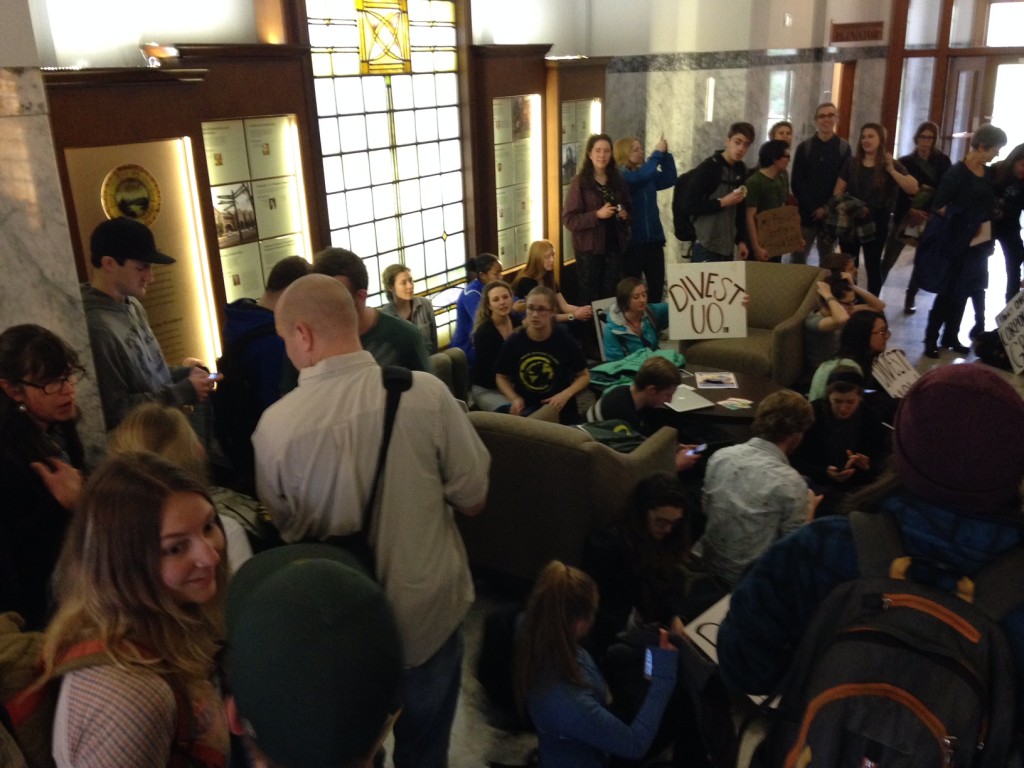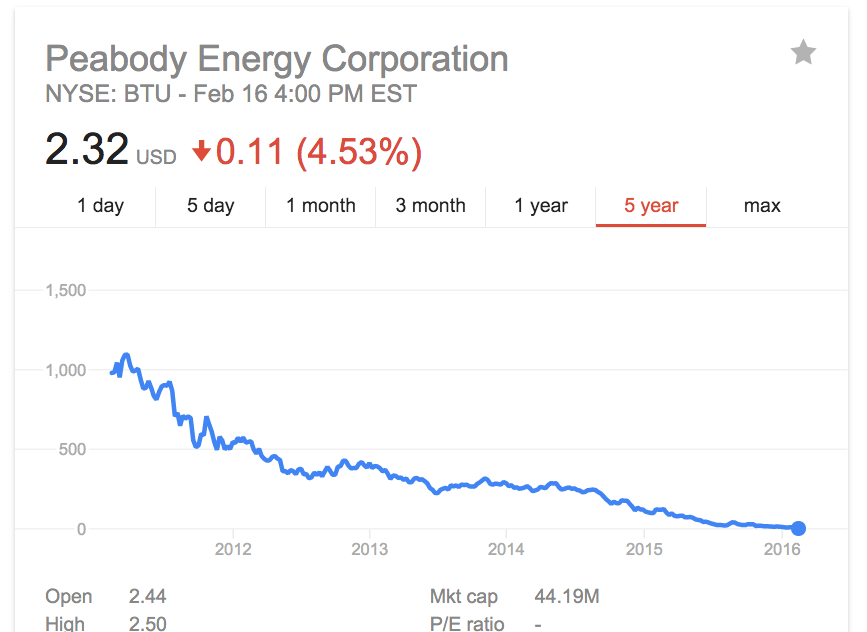Last updated on 03/16/2016
On Facebook, and in Johnson Hall:
Our students have been trying to get Paul Weinhold and Jay Namyet of the UO Foundation to divest from fossil fuel stocks since 2013, when Peabody Coal was at $350 or so. The UO Senate voted unanimously for divestment on Jan 14 2015, when it was at about $98. Today it’s trading at $2.32:


They are just waiting for the price to bounce back to $350.
Waiting until the coal train arrives in hell? It is already there. Come on UO Foundation, jump off.
1. So if the price had gone up, then divestment would have been a bad idea? More generally, we should sell all companies whose price has declined and buy all companies whose price has risen? At best, I don’t see how the price of the stock is relevant here. The argument seems to be that regardless of the stock price or potential for profit, investing in fossil fuels is bad.
2. The real question is does divestment achieve its objective. (Which is what exactly?) If it is to change the behavior of or punish fossil fuel companies, I don’t see how it does that. When we buy and sell stock, we are not transacting with Exxon or this coal company directly. We are buying and selling its stock on a third-party exchange from someone else who previously owned the stock. Exxon does not get any money when we or anyone else buys their stock and consequently, it does not lose any money when we sell its stock. It is not involved in the transaction at all, it doesn’t even know who is buying and selling, nor does it really care. Ownership merely changes hands from party A to party B. Someone has to buy the stock when we sell, otherwise we can’t sell it. That’s how stock markets work. So I don’t see how selling all our shares in coal or oil companies affects these companies at all.
It seems efforts would be better spent in boycotting or drastically reducing our carbon footprint as a university. Like using more solar panels, encouraging people to bike, providing monetary carrots and sticks to ditch gas guzzlers and use less energy, etc. But I really don’t see how selling shares affects decisions for any company.